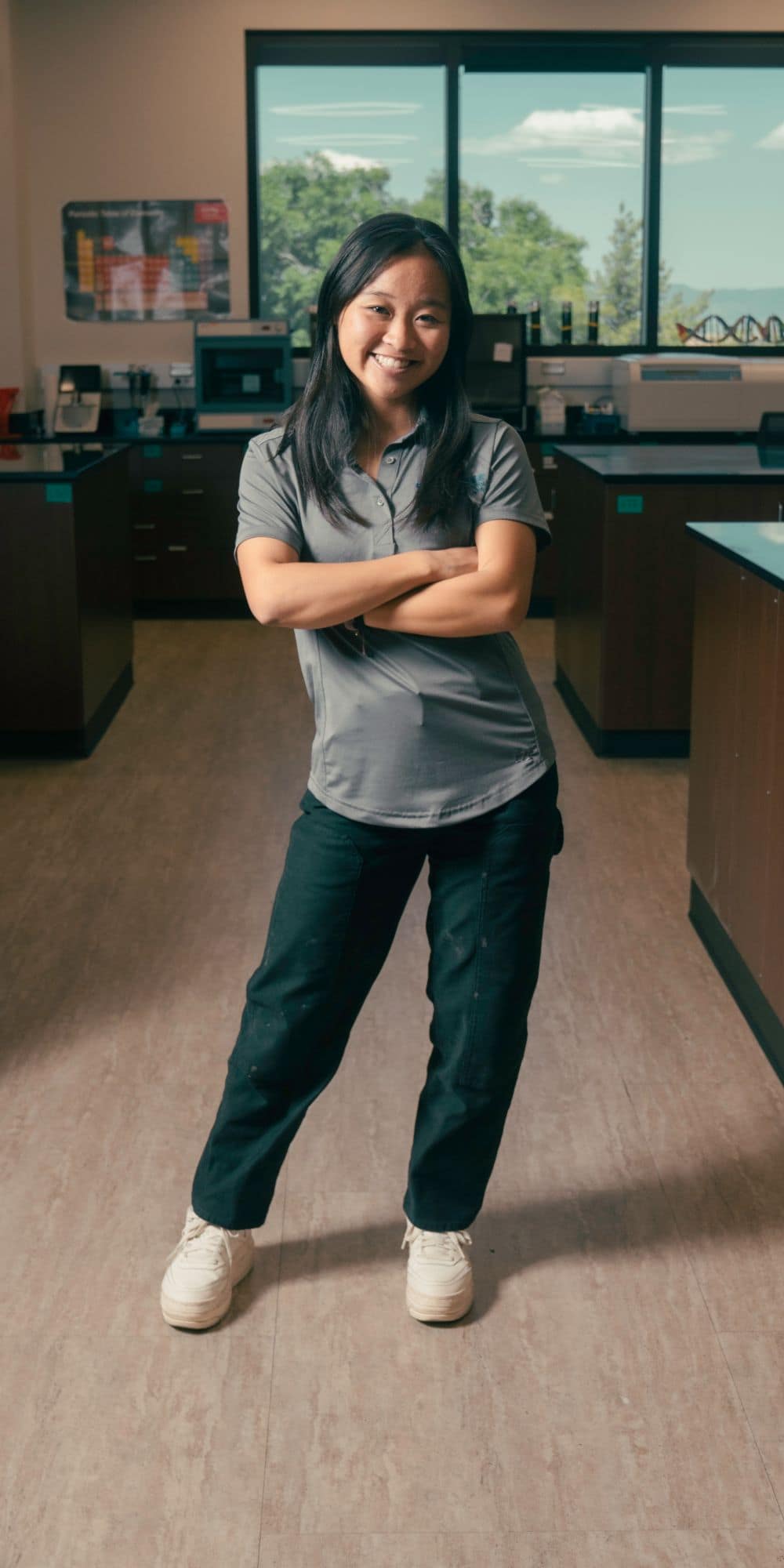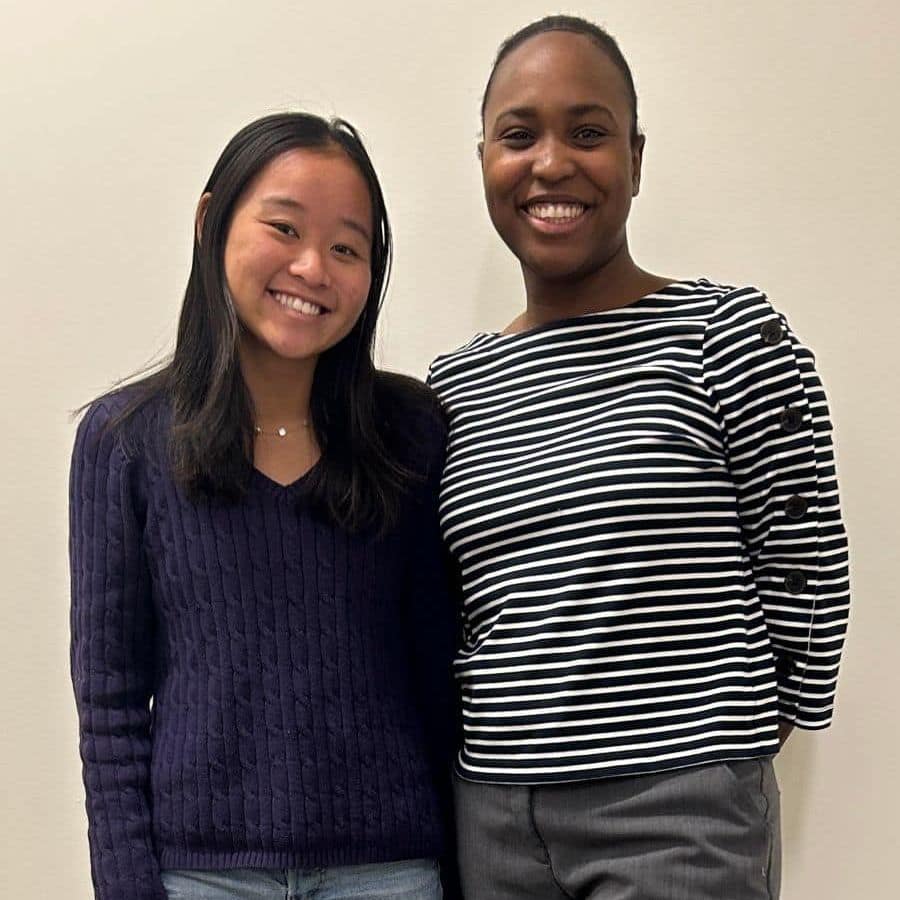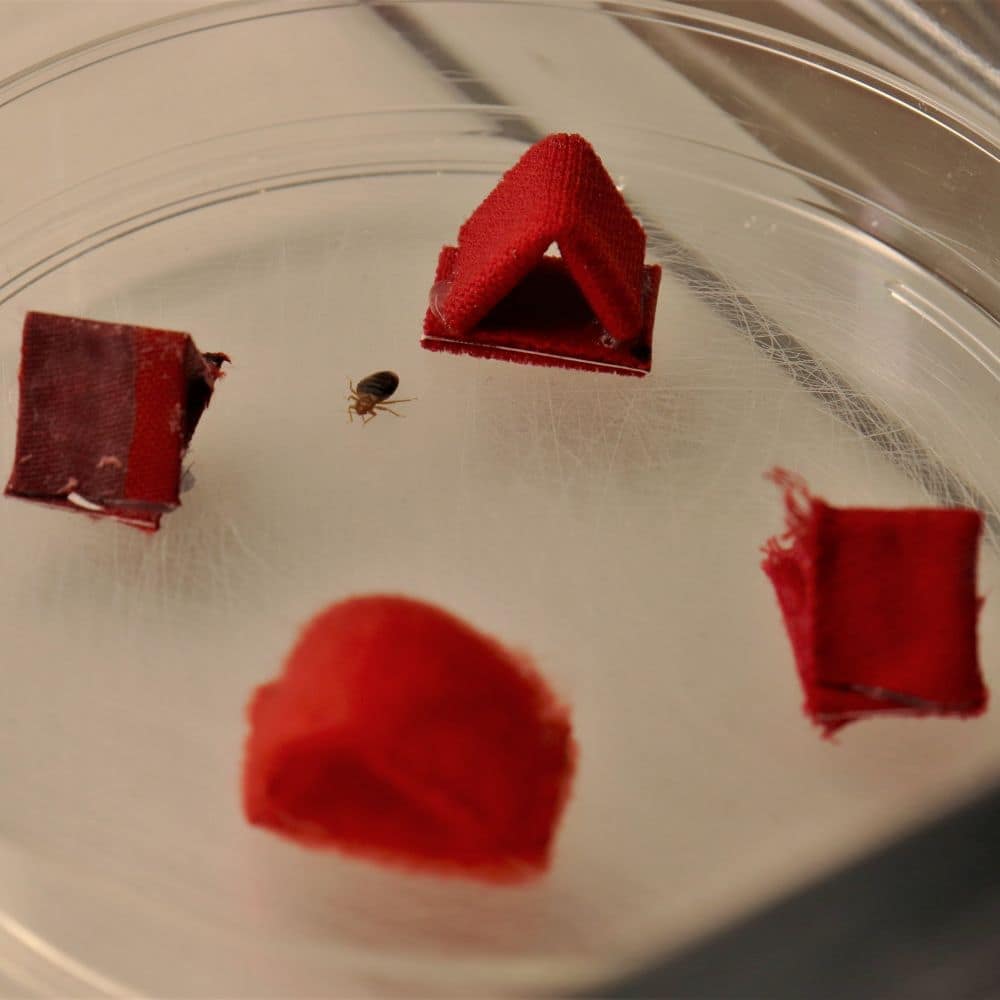

Applied Biology Student Uses Research to Propel into a Future in Medicine

Dreams of Becoming a Doctor
In high school, Raelyn Yoshioka (’25) was initially uncertain of what she wanted to study in college— believing that her dream of becoming a doctor was “unattainable.”
“I am very indecisive and was unsure of what I wanted to pursue,” recalled Yoshioka. “I was always interested in becoming a doctor because everyone looks up to doctors. I thought that was a dream that was unattainable, until I realized it wasn’t. I realized that if I really wanted to become a doctor, I just needed to put in extra work to study.”
Yoshioka’s journey to Embry-Riddle was aided by the Prescott Campus’ Academic Advising team, who provide guidance to students in planning and achieving their educational and professional goals.
“At first, I was going to study Forensic Biology, but then I found an interest in environmental science,” Yoshioka said. “My Academic Advisor, Kai Lee, told me I should switch majors to Applied Biology if I wanted to look more into environmental science. I had taken an AP environmental class in high school that I fell in love with. I didn’t know what I was getting myself into studying biology at an aeronautical university.”
Applied Science at Embry-Riddle
Embry-Riddle offers a diverse array of advanced applied science degrees with many opportunities for students to explore their own undergraduate research projects. While some degrees focus on aviation and aerospace specifically, core principles learned in any science degree can be applied to a host of industries.
“My favorite thing about my major is how small the class sizes are and how personal you get with the professors because you have the same professor for multiple classes,” Yoshioka said. “You also have the same classmates and you build a community.”
The Bachelor of Science in Applied Biology is housed within the Department of Biology and Chemistry at the Prescott Campus’ College of Arts and Sciences and focuses on giving students hands-on access to cutting-edge labs and facilities guided by experienced faculty. The program offers 20 hours of open electives, which encourages students to explore concentrations that suit their interests, such as health science, ecology, wildlife science or forensics.
“The most exciting thing about applied biology is that you learn a little bit about all the sciences,” Yoshioka said. “You don’t only take biology classes. We are also required to take chemistry classes, physics classes and much more.”

Raelyn Yoshioka standing in one of Embry-Riddle’s Bio Labs at the Prescott Campus. (Photo: Connor McShane)
Exposure to Undergraduate Research
Yoshioka recently completed an undergraduate research project alongside Associate Professor of Biology Dr. Corraine McNeill, investigating the nesting habits and fabric preferences of cimex lectularius—commonly known as bed bugs.
“I knew Dr. McNeill from Bio 121. I instantly fell in love with her as a person and a teacher,” said Yoshioka. “She was just so loving, caring and passionate about her job that it made you passionate about what she was teaching. I knew that she wanted to do research, so I went up to her one day after class and asked if I could join her and that’s how we got the ball rolling.”
Their research team applied for and was awarded a grant from the Undergraduate Research Institute, a department on the Prescott Campus that seeks to promote research, scholarly and creative activities at the undergraduate level.
“My teacher had a previous student test [bed bugs] for fabric preferences; however, COVID happened and the research had to stop. So, I basically picked up where the previous student had left off.”
Don’t Let the Bed Bugs Bite
Together with Dr. McNeill and her lab partner, Yoshioka began researching which fabrics bed bugs favor. Their research could reveal the pest’s nesting preferences and lead to ways to combat infestations without the use of harmful chemicals.
“We can apply these results by gearing bed bug traps towards the fabrics they like or do the opposite and use less of the fabrics they prefer,” explained Yoshioka.
“This way of a ‘bed bug’ trap would be very efficient and not chemical based, which is better for human health because some of the pesticides they use may be toxic and it is not efficient because the exterminators could miss a spot in the house.”
The research entailed running experiments to see if the gender, life-stage, nutritional status or aggregation of the insects played a role in determining which of four fabrics the specimens preferred; 100% cotton, fleece, knit and microfiber.
“The process has been grueling,” Yoshioka admitted. “There is a lot that goes into running the experiments, outreach and putting together the final report. On top of that, you are also trying to balance schoolwork, sports and have a social life.”
The result? Females and males have differing opinions on what makes for ideal bedding.
“We concluded that female bed bugs significantly prefer cotton over male bed bugs and males significantly prefer microfiber over females,” Yoshioka concluded.
“Bed bugs may choose a certain fabric because cotton and knit are smoother than fleece, providing enough traction for bed bugs to grasp on. Fleece is looser and more tangled in nature and may not give enough traction for bed bugs to move on or through it. Males are also not able to climb as well and are smaller in size. Engorged bugs are heavier and slower, thus making it harder for them to move through thicker material such as fleece.”


Entering the Medical Field
Now that Yoshioka’s role in researching bed bug preferences has concluded, she has begun considering future areas to explore with undergraduate research.
“I hope that someone else may continue [the bed bug research] and hopefully get published one day. I do have other plans for research with another professor and group,” she said. “It will be focused on helping astronauts stay fit in space and not come back to Earth with muscle atrophy.”Undergraduate research can be a rewarding but time-consuming endeavor— and Yoshioka has advice for future students who may be interested in undertaking research of their own when they arrive at Embry-Riddle.
“Know what you want to do research in or have an idea of what you are interested in and passionate about,” she advised. “You don’t want to get stuck with research that you are not enjoying. I wish I knew how much prep time you needed to put into research. It’s not just like another class where you go to lectures and maybe a lab. You must carve out of your own time to run the experiments.”
“The value of participating in undergraduate research is just getting exposure to research and to know if it is something that you are interested in,” she added.
Exposure to research is preparing Yoshioka for her future dream job as a surgeon— a profession she once believed was ‘unattainable.’ Yoshioka’s successes in the classroom, in the lab and on the field with Embry-Riddle's Women’s Soccer Team have inspired her to consider sports medicine as her ultimate destination.
“My aspirations for the future are to go to medical school and become a surgeon because I want to help people live their best lives and continue to do things that they love to do,” she said. “I am leaning toward orthopedic and sports med because I got the opportunity to shadow an orthopedic surgeon and he deals with a lot of my soccer teammates’ injuries. It is very inspiring to see him help my teammates get back to doing what they love.”

